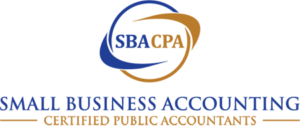Long-Range Planning
If you're just starting your business or in the heat of growing it, then thinking about your exit strategy is probably your last priority — if you've even considered it. Establishing sound accounting practices in the early stages of your business, however, will bolster your company's options when it comes time for you to exit. Whether you sell your business, transfer your responsibilities to a new CEO, or pass on the reins to a family member, it's never too early to start preparing for your eventual exit while making sure that you can get top dollar for all the hard work you put in through the years.
How Sound Accounting Practices Benefit Your Long-Term Exit Strategy
When it comes time for you to exit your company, having a long history of transparent financial records is key to making sure the transition goes well and that you're able to get the most value out of your business, after all your years of hard work.
Business Valuation
Determining an accurate value for a business isn't a simple equation. It's full of nuances, influenced by assumed potential, and impacted by both the buyer's and seller's perceptions of the business and the market. In a business that operates without accurate financial records, determining a reasonable value is just about impossible. If your business doesn't have a long history of accurate financial data, the lack of record keeping will most definitely impact the value of the company.
Anyone interested in purchasing a business will want to know how much your business makes, how much it costs to generate your revenue, how much you owe, and how much you're owed. If you can provide potential buyers with a clean, accurate record of this financial information, in addition to other data on your company, you'll be more likely to find a buyer who's willing to pay the price you're asking.
Yes, part of your company's value is in its tangible assets, like real estate, inventory, cash on hand, receivables, and other assets. But a major part of the sales value of a business is determined by its proof of concept, growth projections, and historic performance. All of these intangible assets can be found in your financial records. You'll need these to justify the seller's discretionary earnings you add into your business's price and to help you determine the industry multiplier you also tack on.
Confidence in Earning and Growth Projections
Potential buyers need to be confident in your business's future earning and growth potential. The only way you can convince them of your company's worth is by showing them realistic projections based on your business's actual historic financial data. When a potential buyer can look back on your business's past performance and locate clear reasons for the company's past financial successes and failures, they'll be more confident that they actually know the business they're thinking about taking over.
Simple Continuation of Your Existing Procedures
Sound bookkeeping and accounting processes that are already in place and working like a well-oiled machine make for a seamless transition from one owner to the next. Whether you're going to sell your business or retain ownership and pass the management reins onto someone else, your business will save the newcomer a whole lot of time, energy, heartache, and headache, if the financial management systems, policies, and procedures which you already have in place are sound. No one wants to redesign a business's operations from the ground-up, so a business that has already figured out how to operate its back-office soundly and smoothly is automatically a much more attractive acquisition.
Establish Sound Accounting Practices Now to Cash-In Later
With SBA CPA as your Virtual CFO, you can start gathering accurate financial data on your business from its very beginnings. Whether you're just getting started, working on scaling your business, or approaching a future exit and the need for an exit strategy, SBA CPA will help you make sure you're prepared to get the most out of a lifetime of hard work.
